Articles by Guest Author
101 - 110 of 176 articles

MURPHY VS NCAA: ¿SE LEGALIZARÁN LAS APUESTAS DEPORTIVAS EN TEXAS?
by Guest Author on May 23, 2018 in CLC
En una resolución histórica el lunes bajo el rubro Murphy vs NCAA, la Corte Suprema de los EE.UU. abolió la ley de Apuestas en Deportes Profesionales y Amateur (PASPA, por sus siglas en inglés), una ley que de manera efectiva prohibía las apuestas deportivas en la mayoría de los estados alrededor del país desde hace 25 años.
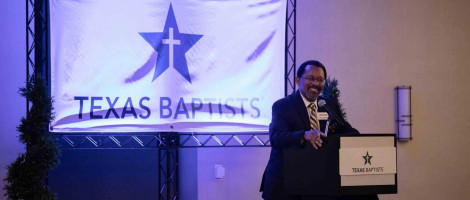
Executive Board affirms statement of peace at May meeting
by Kalie Lowrie on May 22, 2018 in News
During the May 22 meeting of the Baptist General Convention of Texas Executive Board, members affirmed a statement from Executive Director David Hardage encouraging Texas Baptists to seek peace in the midst of violent times in America.

Murphy v. NCAA: Is Sports Gambling Coming to Texas?
by Guest Author on May 18, 2018 in CLC
By Caleb Seibert
In a landmark decision Monday entitled Murphy v. NCAA, the U.S. Supreme Court struck down the Professional and Amateur Sports Betting Act (PASPA), a law that effectively eliminated legal sports betting in most states around the country for 25 years.
The case pitted the State of New Jersey (Gov. Philip Murphy) against the National Collegiate Athletic Association and three professional sports leagues.
The court found that the law violated the “anti-commandeering” principle drawn from the 10th Amendment to the Constitution. This principle holds that Congress may pass laws that must be upheld by states, but it may not issue direct orders to state governments requiring them to take certain state legislative action.
This decision does not immediately legalize sports betting across the country, but it does allow states to legalize such activity in their state if they wish to do so.
As for the effect in Texas, Rob Kohler, a Christian Life Commission consultant, says, "The recent decision by the Supreme Court regarding gambling on sporting events really has no effect on the current gambling regulations in the State of Texas.” The current leadership of Texas has repeatedly rejected efforts to expand gambling in our state. Kohler concludes: “it will however, energize proponents of this, and other forms of gambling expansion in Texas in the upcoming legislative session in January 2019."
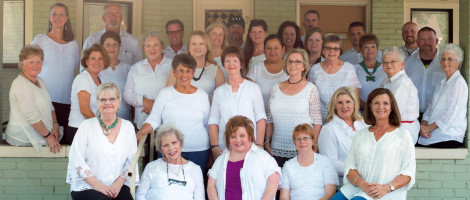
“Greeted with hope”: North Texas ministry empowers, serves mothers
by Guest Author on April 30, 2018 in Hunger Offering
By Abby Hopkins
In 2017, 123 young women considering abortion came to a ministry in Decatur. After receiving loving assistance from Wise Choices Pregnancy Care Center, 103 of these “abortion-minded” women chose life, and the Texas Baptist Hunger Offering is playing a role in serving these new families.
“These girls are absolutely heroes. Choosing to love the child, even when it’s hard – it’s what motherhood is all about,” said Connie Wyatt, CEO of Wise Choices.
Wise Choices is a Texas Baptist Hunger Offering ministry that seeks to empower families throughout a woman’s pregnancy and for the first year of the baby’s life by giving hope.
“We meet them where they are. When they make the choice for life, they’re not in it alone,” Wyatt said.
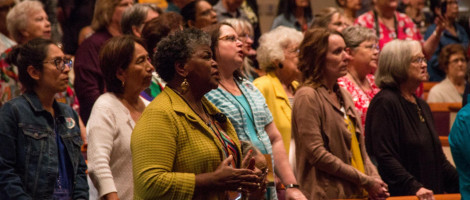
WMU encourages believers to pursue God’s Gospel calling
by Kirsten McKimmey on April 26, 2018 in News
The Woman’s Missionary Union of Texas (WMU) hosted their Annual Meeting and Missions Celebration on April 13-14 at First Baptist Church Georgetown. The focus of this meeting was to pursue God’s Gospel-calling. The event challenged attendees to make an impact in their communities for the Kingdom through passionately telling His story, creatively empowering leaders and obediently engaging the world for Christ.

From Revolving Door to Highway of Redemption: The Church’s Response to 'Second Chance Month'
by Guest Author on April 23, 2018 in CLC
By Caleb Seibert
This month, the Christian Life Commission joined Gov. Greg Abbott and several groups to declare April “Second Chance Month” for formerly incarcerated individuals. Second Chance Month is an opportunity to highlight the challenges of formerly incarcerated individuals and their families and to share stories of redemption for those who have successfully overcome their criminal pasts.
Nearly 70,000 people are released from Texas state prisons every year, but most churches have little to no interaction with them. These people and their families often face a mountain of obstacles to re-entry ranging from work barriers and criminal debt to the deep stigmatization that comes with their past experiences.
Research by Lifeway Publishing in Nashville seems to echo this sentiment. After polling 1,000 Protestant churches, Lifeway found that 31 percent said no former inmates attended their church, 36 percent said one or two former inmates attended, and only 33 percent indicated three or more former inmates attending their church.
Hebrews 13:3 says to “remember those who are in prison, as though you were in prison with them.” How can Christians remember those who are in prison and those who have been released?
Here are four practical suggestions for ministry . . .
Texas Baptist CLC joins with Prison Fellowship to recognize April as Second Chance Month
by Kalie Lowrie on April 16, 2018 in CLC
The Texas Baptist Christian Life Commission has partnered with Prison Fellowship and more than 150 other organizations to recognize April as Second Chance Month, in remembrance of the 65 million people with a criminal record with limited access to education, jobs and other opportunities.
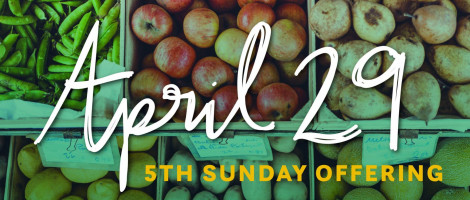
Bless This Meal: A Biblical Perspective
by Ali Corona on April 16, 2018 in CLC
By Ali Corona
He may have felt insignificant -- a young boy walking home with a basket of lunch for his family -- five small loaves and two fish.
With a glance toward heaven and a heartfelt prayer, Jesus multiplied a few parcels into a lavish feast for a crowd that was hungry for spiritual and physical nourishment.
All four gospels recount this important moment in history. The sight of the unseen Kingdom colliding with the world must have made a deep impression on each of their hearts and minds.
Today, an estimated 795 million people around the world are undernourished. In Texas, 1 in 6 families are unable to put meals on their tables everyday. Hunger, both physical and spiritual, is devastating.
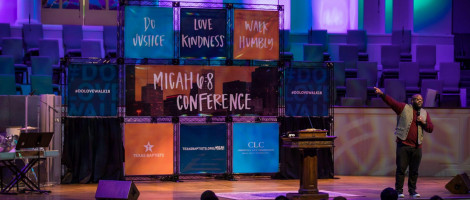
Micah 6:8 conference encourages believers to love neighbors and display God’s holiness
by Kalie Lowrie on March 29, 2018 in News
A diverse crowd of more than 300 united in worship and heeded the call to live in right relationships with God, self, others and creation at the Texas Baptist Christian Life Commission’s Micah 6:8 Conference March 23-24 in Sugar Land, Texas.

The Gospel, Gentrification, and Shalom
by Guest Author on March 6, 2018 in Christian Life Commission
The word “gentrification” is akin to “cancer” in many communities for those who have given their lives to challenges and concerns of these neighborhoods. The reality is that communities are always evolving into new shapes and forms as new people, businesses, ministries, and development change the cultural landscape.
I hear the words of Jeremiah ringing in my ears from church planters to well-established pastors. However, I often sit with multiple community investors who harbor a sense of discomfort and disappointment with the changing context. When offering counsel, the question that must be answered, is what does God want? Does God care for those new residents as much as the existing residents and how do we live together to the glory of God?